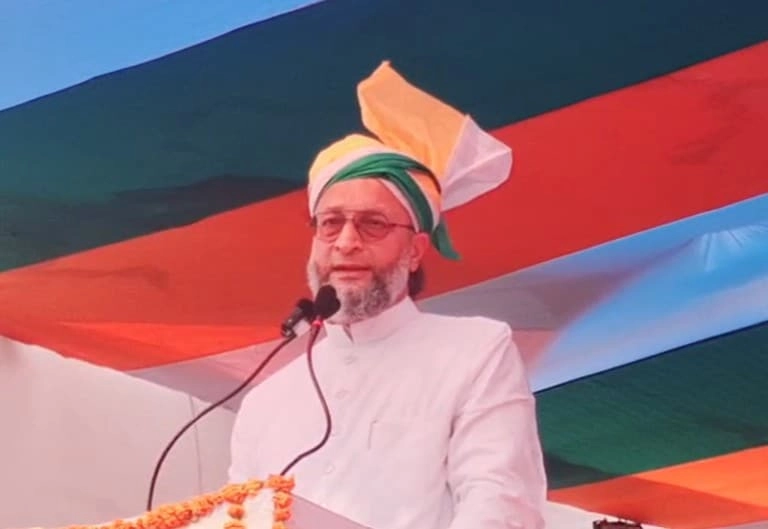In the current political landscape, the dynamics between various parties often lead to unexpected alliances and rivalries. For many right-wing commentators and political analysts, Asaduddin Owaisi, the leader of the All India Majlis-e-Ittehad-ul-Muslimeen (AIMIM), is increasingly viewed as a strategic player in a complex game. His positioning in the political arena is often interpreted as a counterweight to the dominant narratives pushed by the right-wing factions, which typically emphasize Hindu nationalism and cultural homogenization. Owaisi’s rhetoric and actions have made him a focal point for discussions surrounding secularism, minority rights, and the challenges faced by the Muslim community in India, adding layers of complexity to the political discourse.
Owaisi’s approach has been characterized by a fierce defense of Muslim rights and an unwavering critique of the ruling establishments. This has led to a perception among right-wing supporters that he represents “Team B,” essentially serving as an alternative force that counters their ideological objectives. The narrative that positions Owaisi in opposition to the right-wing agenda highlights the ongoing struggle for representation and recognition among minorities in India. His party’s focus on issues pertinent to the Muslim community, such as education, employment, and social justice, resonates with a significant section of the population, thereby solidifying his role as a formidable player in regional and national politics.
Moreover, the polarization of Indian politics often casts figures like Owaisi in a dualistic light—on one side, he is seen as a champion for minority rights, while on the other, he is labeled as a divisive figure undermining national unity. This dichotomy serves to amplify the stakes of political engagement in India, where every statement and action can have far-reaching implications. As Owaisi continues to challenge the status quo, he forces right-wing factions to rethink their strategies and messages, leading to a more vibrant, albeit contentious, political discourse. In this sense, his role transcends mere opposition; he embodies the complexities of contemporary Indian identity politics, making him a critical figure for both supporters and detractors alike.
As the political landscape evolves, the interactions between Owaisi and right-wing parties will likely shape the contours of future elections and policy debates. His ability to galvanize support among disaffected voters and challenge dominant narratives signifies a shifting paradigm within Indian politics. For the right-wing, viewing Owaisi as “Team B” reflects not only their apprehensions regarding his influence but also an acknowledgment of the changing demographics and sentiments within the electorate. The ongoing dialogue, fraught with tension yet vital for a pluralistic society, underscores the importance of diverse voices in shaping India’s democratic ethos. Thus, as we navigate this complex political terrain, it becomes increasingly clear that figures like Owaisi will remain pivotal in the ongoing quest for representation, justice, and equality in the world’s largest democracy.




